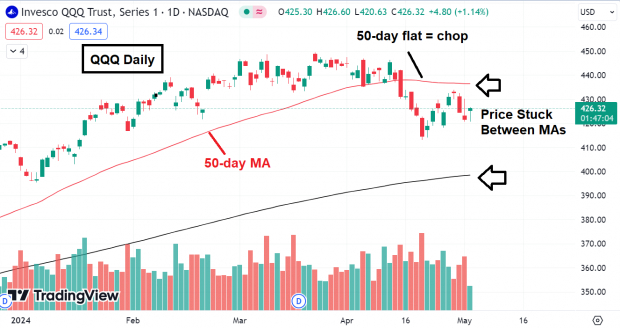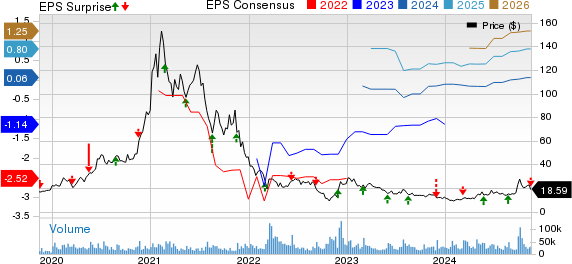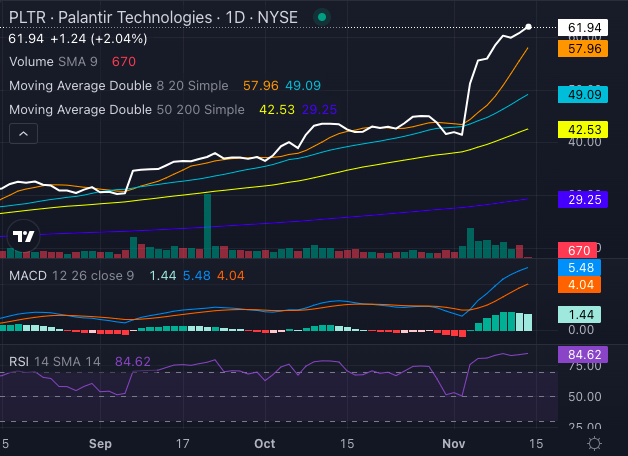Understanding Choppy Markets
Choppy markets, like those observed during the Great Depression crash of 1929, have a tendency to leave investors in a state of flux. Jesse Livermore’s famous words, “There is a time to go long, a time to go short, and a time to go fishing,” echo through the history of stock trading, underscoring the challenge of navigating sideways, turbulent conditions.
The current equities environment mirrors this chaos, highlighting the importance of recognizing market conditions over stock selection. As the saying goes, “If they don’t scare you out, they’ll wear you out.” In this light, surviving and thriving amidst the turbulent seas of the market require keen insights and astute strategies.
Spotting the Chop
Clue #1: Stuck Between MAs
Identifying a choppy market can be as simple as glancing at major indices like the Nasdaq 100 ETF (QQQ), S&P 500 Index ETF (SPY), and Russell 2000 Index (IWM). When these indices meander between their 50-day and 200-day moving averages, it’s a clear sign of sideways movement. Additionally, a flattening 50-day moving average is a red flag for non-trending stock prices.
Clue #2: Portfolio Progress
An upward-trending equity curve that suddenly starts moving back-and-forth is a signal worth heeding. Pay attention to the subtle hints the market provides.
Navigating the Chop
Play the Ranges
Active traders must deftly navigate buying weakness and selling strength, a task more arduous than it appears on the surface.
Trade Smaller or Not at All
Unlike poker, there’s no “anti” for investors. Hence it’s prudent to exercise restraint and wait for clearer trends instead of battling against a turbulent market.
Find Non-Correlated Trades
Active investors should seek refuge in non-correlated markets when domestic equities waver. Chinese ADRs such as Alibaba (BABA), JD.com (JD), and PDD Holdings (PDD) have shown resilience compared to the S&P 500 Index. Alternatively, trending commodities like the Silver ETF (SLV) or Gold ETF (GLD) offer alternative paths.
Preparing for the Future
The pathway to future success lies in observing the 50-day moving average’s upward turn, stocks reclaiming the 50-day MA, and identifying relative strength among stocks that outperform the general market.
The Bottom Line
While choppy markets present a formidable challenge, adeptly understanding and navigating market conditions can empower investors to not only survive but thrive in the long run.



